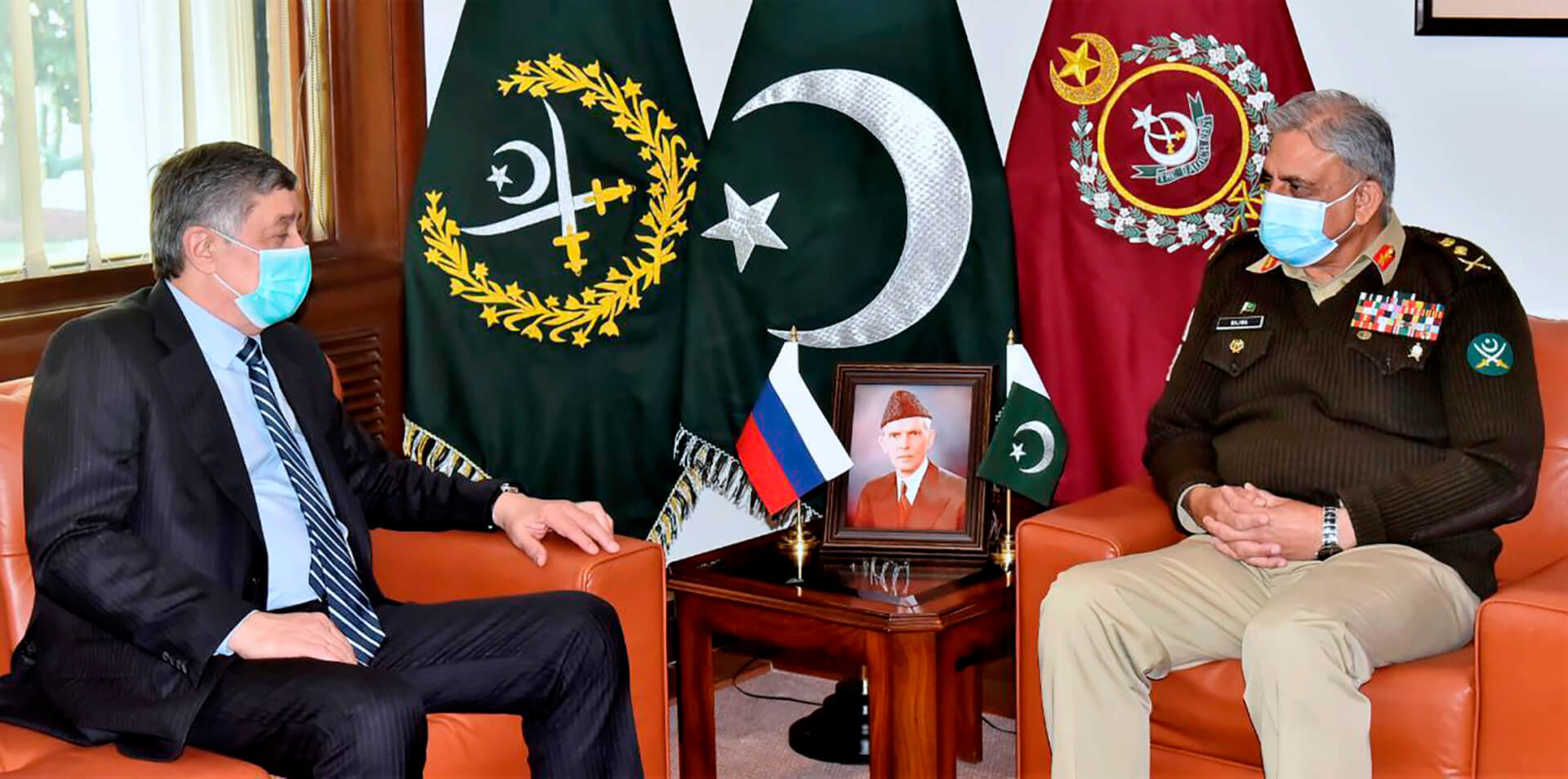On Friday, Zamir Kabulov, the Russian special envoy for Afghanistan, visited Pakistan and met with the country’s Army Chief, General Qamar Javed Bajwa, to discuss the ongoing peace process in Afghanistan. He also urged the Pakistani side to extend their support for a meeting in Moscow later this month to further this aim. This is a reference to the Moscow format, a Russia-led initiative, which was set up to allow for the collaboration of regional stakeholders of the Afghan peace process. The 2018 meeting, which marked the second edition of these talks, represented the first time the Taliban had been invited to participate in an international forum.
Speaking to a Russian government-funded media house, Kabulov said, “My leadership has set the task of finding ways that will facilitate the start of inter-Afghan negotiations through consultations within the framework of the enlarged troika.” The “enlarged troika” is a grouping of countries who have had the most control over the peace process in Afghanistan, and includes the United States (US), China, Iran, Pakistan, and Russia. Russia has been looking to expand this grouping to include other regional powers like India and other Central Asian countries, with the aim of enhancing the chances of the peace negotiations succeeding.
In the interview, Kabulov also spoke of the need to set up an interim government in Kabul that includes the Taliban. However, this was not taken well by the Afghan government. Responding to Kabulov’s interview, the Afghan foreign ministry released a statement dismissing his claims, saying that they were not only against the ground realities in Afghanistan but also against the official stance of the Russian government on the issue.
On the same day, General Kenneth McKenzie, the head of the US Central Command (CENTCOM), also met with Bajwa to discuss the need to support the Afghan peace process, which remains stalled. According to a US embassy release, the two leaders expressed their joint commitment “to exploring new areas for collaboration to maintain security, stability, and prosperity within the regions.”
Pakistan plays a crucial role in the peace process. Previously, it pressurised the Taliban to enter into negotiations with the US, which played a role in kickstarting the US-Taliban peace deal in February 2020. Hence, these meetings hold great significance, as the Pakistani side could prospectively use its leverage to force the Taliban to revive the stalled peace negotiations.
Moreover, these meetings come as the deadline for the withdrawal of foreign forces from Afghanistan, as determined by the US’ peace deal with the Taliban, approaches. However, following a NATO defence ministers’ meeting, which was concluded on Thursday, the leaders expressed their intention to stay beyond the May 1 deadline, specifically in light of the growing violence in the region. NATO Secretary-General Jens Stoltenberg said, “The problem is, to leave Afghanistan is conditions-based. Our presence in Afghanistan is conditions-based … The Taliban has to meet their commitments.” This was further echoed by the newly appointed US Defence Secretary Lloyd Auston, who said that the American troops will not be hastily withdrawn from the region.
NATO has justified its decision to violate the May 1 deadline by citing the ongoing violence that continues to ravage the country. While no foreign forces have been attacked since the deal was signed in February 2020, several civilians, along with Afghan officials such as judges, continued to be attacked. In fact, on Sunday, three separate attacks in Kabul killed at least five people. One of the attacks targeted a police vehicle.
US, Russia, Pakistan Discuss Afghanistan Peace Process
Acknowledging the crucial role played by Pakistan in negotiating with the Taliban, Russian and American envoys conducted a meeting with the Pakistani Army Chief on the peace process in Afghanistan.
February 22, 2021

SOURCE: ASSOCIATED PRESS
